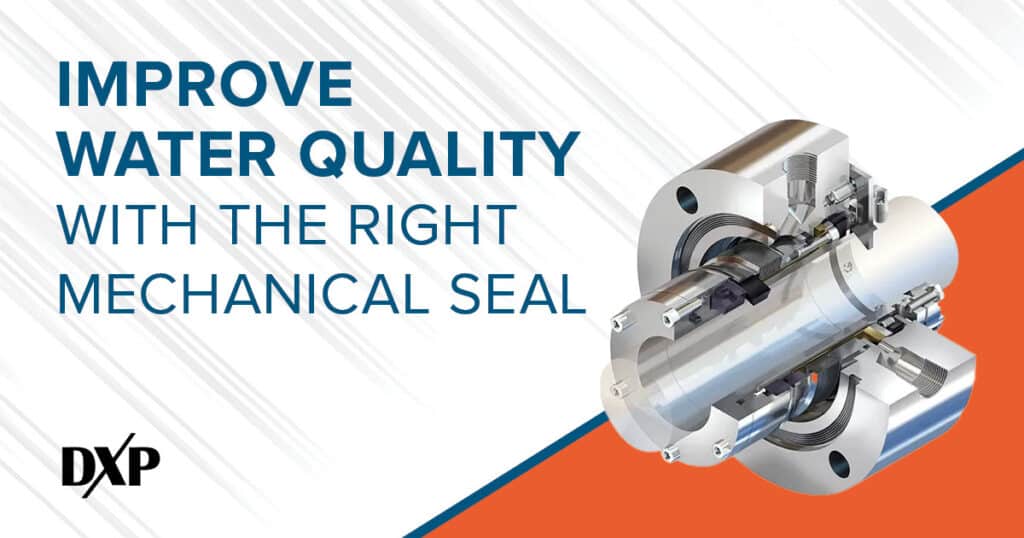Mechanical seals are crucial components in water treatment pump systems. They minimize the risk of costly pump leaks, which can lead to lost water, lost pump pressure, reduced energy efficiency and damaged equipment. Most importantly for this application, they prevent outside contaminants from entering the water system and compromising your water quality.
The Importance of Mechanical Seals
Drinking water treatment requires the operator to meet very strict guidelines and health requirements. Mechanical seals used in potable water production must comply with NSF/ANSI/CAN 61 standards, per federal and state criteria. Today’s top mechanical seal producers offer seals that meet these guidelines. Pay attention to the product specifications and confirm they match your water treatment requirements. This applies to different types of mechanical seals, such as cartridge seals, split seals, O-ring pushers, and elastomer bellows.
It is absolutely critical to select the right type of mechanical seal for your specific pump system. Proper seal selection provides many benefits, with higher potable water quality being the most important. Here are some key considerations for different mechanical seal types relating to water treatment applications:
Cartridge Seals
Facilities with smaller pumps (with shaft sizes less than three inches) generally prefer standard cartridge seals. Cartridge seals feature seal components arranged on a shaft sleeve in a seal gland. The components are made into a single unit. This makes them more affordable and easier to install/maintain. Users don’t have to worry about assembling a complex seal themselves. The plug-and-play seal configuration offers less risk of assembly error when mounting.
Elastomer Bellows and O-Ring Pushers
These are common variations of cartridge seals. They offer similar benefits when it comes to ease of use. They are also configured as a single unit that is easy to install, use, and maintain. These alternatives may be preferred for specialized pump equipment or water treatment processes where a standard cartridge seal won’t suffice. Consider which type of cartridge seal is best for your specific pump system and application.
Split-Cartridge Seals
A split-cartridge mechanical seal is designed as two pieces. Though they are more expensive and can be cumbersome to install, they offer certain advantages compared to single-cartridge mechanical seals. In general, split seals are best for larger rotating equipment used in water treatment applications. This may include pumps with shaft sizes larger than three inches.
One key benefit of split seals is they can typically be installed without having to move the pump from its foundation. The split-cartridge design allows the operator to access the seal placement on the equipment. Old seals can be removed, and new seals can be installed. The installation process is trickier with two halves that need perfect alignment. Operators need to be properly trained, and several critical steps need to be taken. One of the biggest challenges is positioning the O-ring. One false move can render the seal useless. The other downside of split seals is cost. They cost more than single-cartridge seals. However, the investment may be worth it based on your equipment, application, and pump system configuration.
To select the right mechanical seal for your water treatment pump system, contact DXP Pacific today. We work with leading mechanical seal manufacturers, such as John Crane, Flex-A-Seal, Flowserve, Chesterton, and AES Seal. Let our pump experts find the best seal for your rotating equipment.

